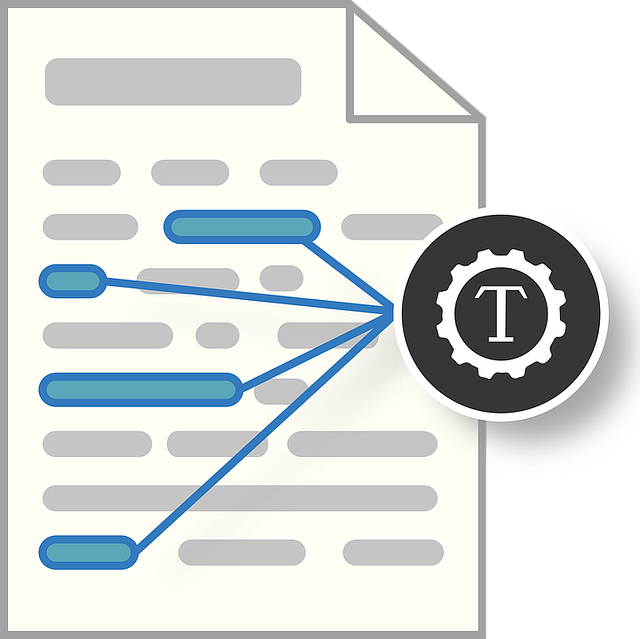UK Human Resources Documents translation services are essential for organizations with international employees, providing accurate and certified translations of employment contracts and HR policies to ensure clarity, legal compliance, and cultural nuance within a multilingual workforce. These specialized services are staffed by translators who are not only linguistically proficient but also well-versed in UK employment legislation, ensuring that the translated content accurately reflects the original texts. This dual expertise is crucial for maintaining compliance across different linguistic territories and mitigating risks associated with miscommunication or non-compliance. By leveraging these services, companies can effectively communicate with their diverse workforce, adhere to legal standards, protect operations from potential issues, and maintain trust among employees. It's important to select a provider with expertise in HR-specific terminology, a robust quality assurance process, and a history of translating HR materials for multilingual regions within the UK. This level of professionalism guarantees that all HR documents are precise and compliant, facilitating effective communication across different languages and cultures.
navigating the complexities of international employment, particularly within the UK, hinges on clear and legally compliant human resources documents. This article delves into the critical role of certified translations for employment contracts and HR policies, essential for organisations with multilingual staff. We explore how professional UK Human Resources Documents translation services ensure compliance with local employment laws and facilitate smooth cross-cultural operations. From understanding the necessity of these translations to a step-by-step guide on the certification process, we cover key considerations for selecting a reliable service provider and present case studies highlighting successful integration of multilingual teams through precise translations. Understanding this aspect is not just about language; it’s about ensuring legal integrity and operational efficiency in a diverse workforce environment.
- Understanding the Necessity for Certified Translations of Employment Contracts and HR Policies in the UK
- The Role of Professional Translation Services in Compliance with UK Employment Laws
- Key Considerations for Choosing a Reliable UK Human Resources Documents Translation Service Provider
- A Step-by-Step Guide to the Certification Process for Employment Contracts and HR Policies Translations
- Navigating Language Barriers: How Certified Translations Facilitate Smooth Cross-Cultural Operations in the UK
- Case Studies: Successful Integration of Multilingual Staff through Accurate Translation of UK HR Documents
Understanding the Necessity for Certified Translations of Employment Contracts and HR Policies in the UK

In the UK, the seamless integration of a multilingual workforce necessitates the meticulous translation of HR documents to ensure clarity and compliance with legal standards. Certified translations of employment contracts and HR policies are indispensable for organisations that operate across linguistic boundaries. These translations, provided by specialized UK Human Resources Documents translation services, serve as authoritative renditions of the original texts, verified by official stamps or certificates that attest to their accuracy. This certification is imperative as it confirms that the translated content is a true and faithful representation of the source material, thereby upholding the integrity of legal agreements and company policies. Employment contracts, in particular, must be transparent and legally binding for both employers and employees, regardless of language proficiency. Similarly, HR policies, which outline the framework for workplace conduct, employee rights, and company procedures, must be accessible and understood by all employees to foster a harmonious and lawful work environment. Utilising professional UK Human Resources Documents translation services ensures that such critical documents are not only linguistically accurate but also culturally relevant, facilitating effective communication and legal adherence within diverse organisational settings. This commitment to precision and compliance is crucial for maintaining the trust of employees and satisfying the legal requirements set forth by UK law.
The Role of Professional Translation Services in Compliance with UK Employment Laws

Navigating the complexities of employment law within the United Kingdom necessitates precise and accurate translations of HR documents to ensure compliance and legal integrity. Professional translation services specialising in UK Human Resources Documents offer indispensable support for businesses with multilingual workforces or those seeking to expand their operations across different linguistic territories. These services are equipped with expert linguists who not only possess a deep understanding of the target language but also have a comprehensive grasp of UK employment legislation. This dual expertise ensures that all translations, including employment contracts and HR policies, are rendered accurately and in full compliance with the specific legal requirements applicable to UK-based employees. By leveraging these translation services, companies can mitigate the risks associated with miscommunication or non-compliance, thereby safeguarding their operations and maintaining a harmonious work environment for all staff members, regardless of linguistic background.
Key Considerations for Choosing a Reliable UK Human Resources Documents Translation Service Provider

When engaging with a UK Human Resources documents translation service provider, it is paramount to consider the provider’s expertise in HR-specific terminology and legal nuances. A specialized translator with a thorough understanding of employment law and human resources practices within the UK will ensure the accuracy and compliance of translated contracts and policies. This expertise is crucial as these documents often contain complex language that can significantly affect the rights and obligations of both employers and employees. Additionally, the chosen service should have a robust quality assurance process to guarantee consistency and precision across all translations, reflecting the legal standards and cultural nuances relevant to the UK. By selecting a provider with a proven track record in handling HR documents, businesses can navigate international employment regulations with greater confidence and clarity.
Another key consideration is the provider’s familiarity with the specific language pair required for your documents, coupled with their experience in translating HR materials. For instance, proficiency in both English and another language, such as Spanish or French, is essential if your organization operates across multiple linguistic regions within the UK. The service provider should also demonstrate an understanding of the cultural subtleties that can affect translation outcomes. This includes not only the literal translation of text but also the interpretation of cultural references and idiomatic expressions that may be present in UK HR documents. A reliable provider will offer certified translations that meet both legal standards and the linguistic needs of diverse workforces, facilitating seamless communication across different languages and cultures.
A Step-by-Step Guide to the Certification Process for Employment Contracts and HR Policies Translations

When expanding your business operations or hiring international talent, it’s crucial to have all HR documents, including employment contracts and HR policies, accurately translated into the target language. In the UK, this involves engaging with professional translation services that specialise in Human Resources documents. The certification process for these translations is a structured approach that ensures the translated content is not only linguistically accurate but also legally compliant.
The first step in the certification process is to select a reputable UK Human Resources Documents translation service with certified translators who are native speakers and members of professional translation bodies, such as the Institute of Translation and Interpreting (ITI) or the Chartered Institute of Linguists (CIOL). These professionals will have the expertise to understand the nuances of both the source and target languages, as well as the legal requirements for translations in the UK. Once the documents are translated, they must undergo a meticulous review process to ensure accuracy and completeness. The translators will compare the translated text against the original documents to verify that all information has been accurately conveyed.
After the initial review, the translator will then certify the translation by adding a statement of accuracy. This declaration attests that the translated document matches the original content and that the translation is complete and accurate to the best of their knowledge. The certification must include the translator’s full name, their professional qualifications, a statement confirming that they are a certified translator, and the date of the translation. Finally, the translated documents should be stamped with an official stamp or seal from the translation service to verify the authenticity of the certification. This step is essential for legal entities in the UK to accept the translations as official and binding, ensuring that your employment contracts and HR policies are legally compliant and enforceable in the UK jurisdiction.
Navigating Language Barriers: How Certified Translations Facilitate Smooth Cross-Cultural Operations in the UK

Navigating language barriers is a critical aspect of cross-cultural operations, particularly within the UK’s diverse workforce. Certified translations of HR documents are indispensable in this context, ensuring that employment contracts and HR policies are accurately conveyed across different languages. In the dynamic landscape of UK Human Resources, translation services specialising in certified translations play a pivotal role in maintaining clear communication between employers and employees who speak different languages. These translations are not just mere interpretations; they are meticulously crafted to capture the nuances and legal stipulations of the original text, providing all parties with an understanding that is both precise and legally compliant. This precision is crucial for compliance with UK employment law and for fostering a work environment where every employee, regardless of linguistic background, can fully understand their rights and responsibilities. Moreover, these translations are executed by professionals who are native speakers and experts in HR terminology, ensuring that the translated documents reflect cultural subtleties and legal requirements specific to the UK. By removing the barriers of language, certified translation services facilitate a smoother operational process, enhancing efficiency, compliance, and inclusivity within multicultural organisations across the UK.
Case Studies: Successful Integration of Multilingual Staff through Accurate Translation of UK HR Documents

UK-based companies with a multilingual workforce have encountered significant challenges in ensuring clear and accurate communication, particularly when it comes to human resources documents. The successful integration of these diverse teams hinges on the precise translation of UK HR documents. A case study that exemplifies this is the expansion of a mid-sized IT firm that experienced rapid growth due to international market penetration. This influx of non-English speaking employees necessitated the provision of UK Human Resources Documents translation services, which were initially managed through a combination of in-house staff and external agencies. However, the reliance on a patchwork of translators led to inconsistencies and misinterpretations, which ultimately affected employee satisfaction and legal compliance.
Recognizing these issues, the company decided to streamline their translation process by partnering with a specialized translation service provider. This strategic move ensured that all UK HR documents were not only accurately translated into the required languages but also maintained the original intent and context. The result was a marked improvement in employee engagement, with staff from various linguistic backgrounds reporting increased clarity on policies, procedures, and expectations. This case study underscores the importance of professional translation services for UK Human Resources Documents, highlighting how such services can facilitate better communication, enhance legal compliance, and foster a more inclusive work environment for multilingual teams.
In conclusion, navigating the intricacies of UK employment law and ensuring clear communication within a multilingual workforce necessitates precise and certified translations of employment contracts and HR policies. Professional UK Human Resources Documents translation services play a pivotal role in this process, offering accurate translations that comply with legal standards and facilitate effective cross-cultural operations. Organisations must carefully select service providers that guarantee both linguistic proficiency and familiarity with the UK’s HR framework to avoid potential legal pitfalls and promote an inclusive environment for all employees. By adhering to the outlined certification process and leveraging expertise in this domain, businesses can seamlessly integrate multilingual staff, thereby enhancing operational efficiency and fostering a diverse, yet united, workforce.
